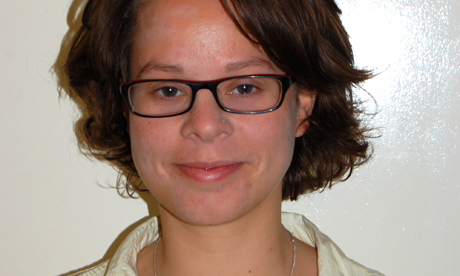Tackle climate change in Hackney? Yes, we Cancún

Kate Hand of Hackney Friends of the Earth
Hands up if you’ve been to Mexico! Have a good time? Lots of sombreros, enchiladas and cute pictures of cactuses? Excellent. Well, you’ll be pleased to hear that Mexico has a new claim to fame: international climate talks in Cancún. Now at first sight these obviously aren’t quite as sexy or interesting as a tall, dark man in a poncho, but in fact it has far more to do with you than you might think.
When people talk about ‘international’ issues, I suspect they’re thinking of a kind of umbrella which spreads across countries and continents, only touching down in places like Brussels, New York and Tokyo. For me, though, ‘international’ issues are inter-national: those which bring countries together. They are the common concerns like health, employment, energy security. It is the dense tapestry of these individual and local concerns that creates international issues, so Cancún is relevant to us all. Setting aside some of the jargon, we can look at how the international talks affect Hackney?
In relation to health, Hackney Council’s climate change strategy comes to our aid. It shows that since 10% of Hackney is within a flood zone, residents in these areas are vulnerable to increases in personal injury, water-borne diseases and contamination. Other risks across the borough include increased levels of UV radiation (which increases the risk of skin cancer), pollution (Hackney had the 14th high admissions rate for children with asthma in 2009, at 59% above the English average) and fuel poverty (one in three Hackney residents live in fuel poverty).
In relation to jobs, the EU has forecast that even a 20 per cent cut in energy consumption by 2020 would bring 60 billion euros per year in savings, and create one million jobs across the EU. The 2009 UK Low Carbon Transition Plan states that “acting on climate change will stimulate innovation and new technologies to help businesses reduce energy costs, and will provide employment in ‘green industries’.” The Plan estimates that by 2015 the low carbon economy could be worth £150m a year in the UK alone. At the local level these statistics become people you know in your community: Kirklees Council have already created 120 jobs by offering free loft and cavity wall insulation to all of its 170,000 homes.
Finally, you don’t need to be a genius to see that the fossil fuels upon which we depend create enormous amounts of greenhouse gases, and that the fuels are running out. Controlling their use and promoting alternatives is an important element of the climate talks, but given that the most effective solution to this problem (and the associated one of energy transmission) is decentralised, renewable energy, we rapidly find ourselves back in Hackney. Happily, Team Hackney’s 2009/10 annual report talks about “Developing a Combined Heat & Power and Decentralised Energy master plan for the borough and delivery of initial opportunity projects”, and “Delivering estate and area regeneration that includes the development of decentralised energy sources.”
Climate change ultimately manifests itself locally: affecting you, your neighbours, and your friends and family. But the solutions are also local. National governments and internationally processes have an incredibly important role to play, but ultimately we’re trying to create better local places, and so we – and our council – must explicitly tackle climate change in order to create places in which we wish to live.
More information about Hackney Friends of the Earth.
